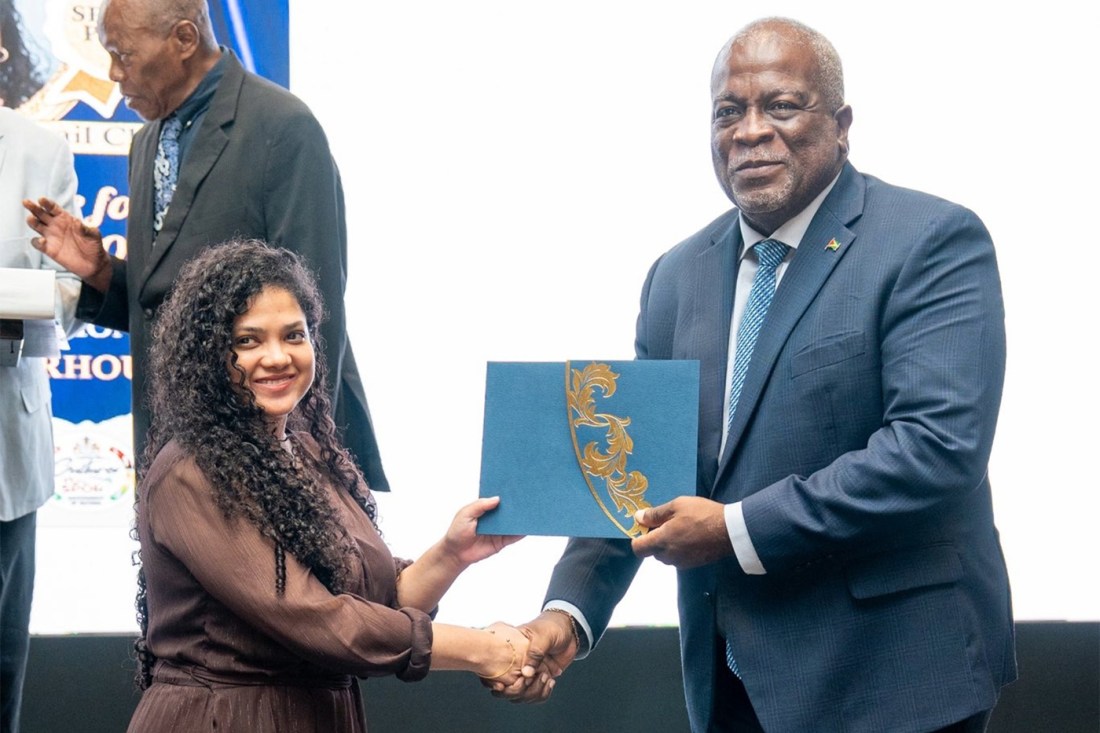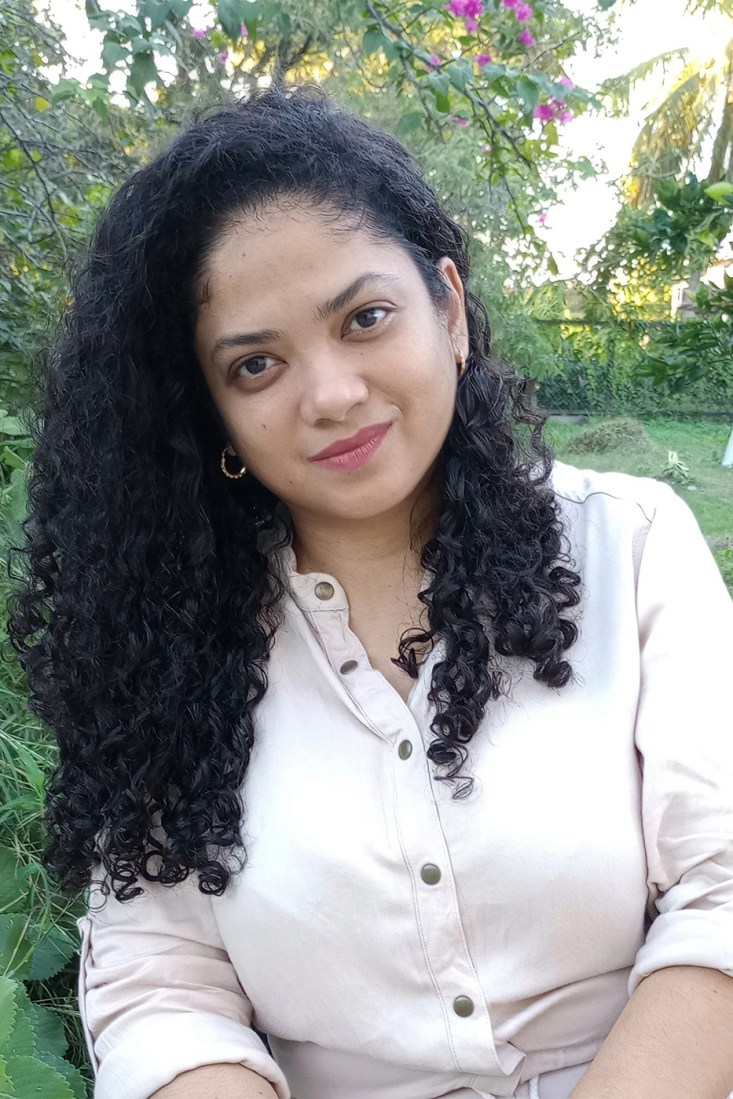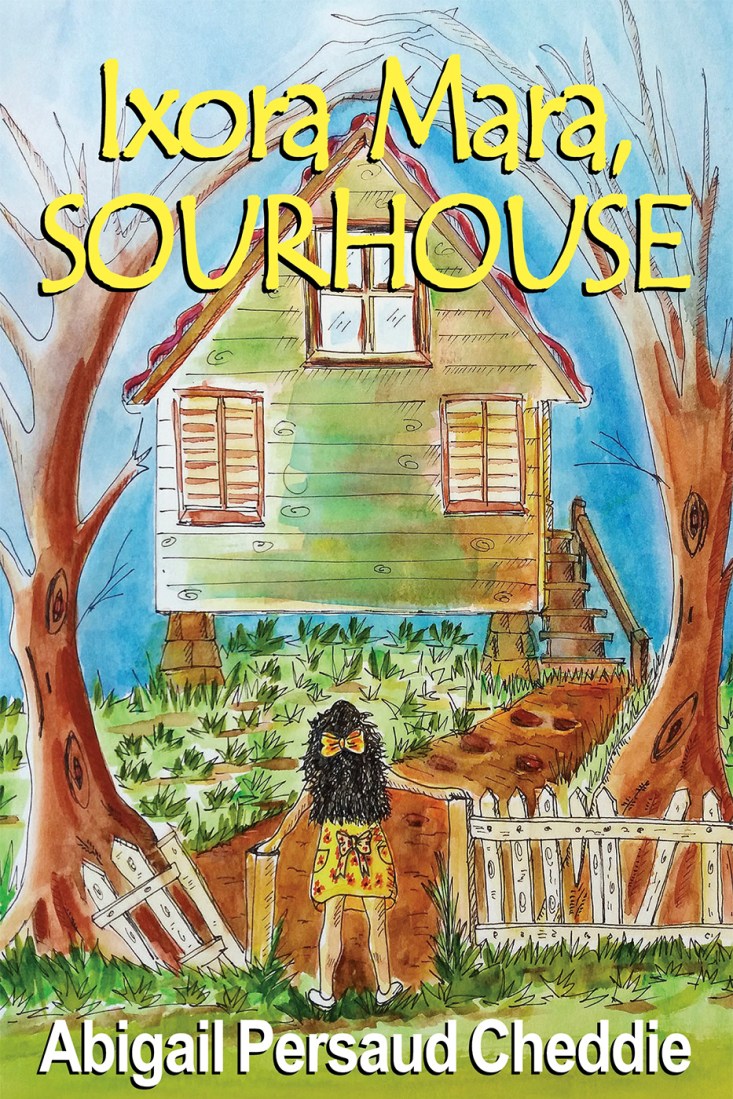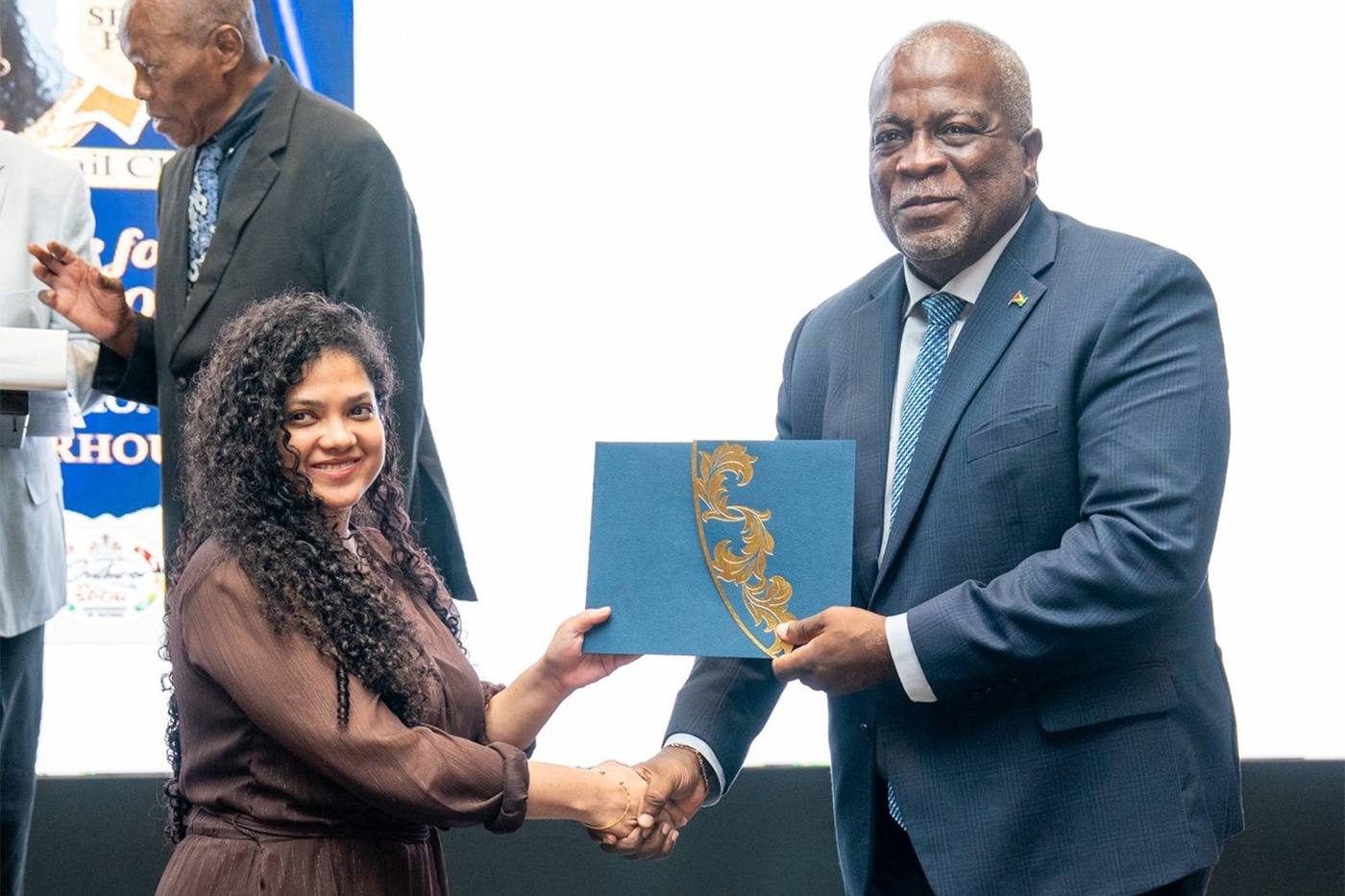Abigail Persaud Cheddie considered throwing in the towel on her writing career. Now she is receiving awards from the prime minister of Guyana.

LONDON — There were times, admits Northeastern University student Abigail Persaud Cheddie, that she contemplated throwing in the towel on her dreams of becoming a writer.
But now she is reaping the rewards for sticking with her childhood ambition.
Her novel, “Ixora Mara, Sourhouse,” was announced last month as the winner of the Special Judges Prize for Young Adult Fiction at the Guyana Prize for Literature 2024. She received the award from the prime minister of Guyana, Mark Phillips.
Cheddie’s debut novel had been 20 years in the making, having first come up with the inspiration to write a book when she was 16. It gradually morphed into “Ixora Mara, Sourhouse,” a coming-of-age story about emigration and exodus from the South American country, as seen through the eyes of a 7-year-old girl growing up in the countryside.
Stewart Brown, the chairman of the competition’s jury, described Cheddie’s work as “a smart and emotionally rich exploration of Guyanese identity, brain drain, and the psychological toll of being left behind in a globalizing world.”
“Her social commentary on education, poverty and class is incisive,” he continued. “The prose is often poetic. Scenic descriptions are immersive and intelligent, balancing satire with beauty.”
The novel was put forward for the award by the publisher of her book, Hansib Publications, before making it onto the shortlist in June. The literary prize winners were then announced at a ceremony in Georgetown, Guyana, on July 5.
Cheddie — who is studying for a master’s degree in contemporary creative writing, which is led by assistant professor Claire Griffiths and taught online from Northeastern’s London campus — says the prize has brought home to her “my responsibility as a writer.”


She says her mission is to bring to life the narratives of rural Guyanese and Caribbean life and to tell stories that are “inspired by home and written from home.”
“I wanted to write a story that elevates the anxieties and simultaneously celebrates the beauty of the Guyanese landscape,” she says. “And I wanted to write a migration story from the inside, from the unmigrated side — from home, from within Guyana.
“I think we’ve got so many great migration stories from the Guyanese-Caribbean diaspora. And we’ve got many stories about leaving. But we need more stories about staying, more voices from the inside — stories that balance the scales and narratives that unfold with more nuance and respect for the emotions occurring on both sides of the migration equation.”
The author, who has taught English literature at the University of Guyana for 17 years, says there have been “special moments” since the publication of the book where readers have “embraced and celebrated” the tale of her main character, Ixora, having to process her best friend leaving their village.
She says she is “quietly grateful” for the reception the book has received and the recognition shown by the judges of the Guyana Prize for Literature, which is co-ordinated by the country’s Ministry of Culture, Youth and Sport.
Cheddie remembers being about 8 years old when she penned her first poem. During her teenage years, she describes her writing as coming in cycles — she would write in a blitz and then suddenly stop altogether.
At one point, she doubted whether her aspirations to be a published author would ever be fulfilled. “There were about two or three times when I almost crossed the line to give up completely,” she admits.
“One of these times was just before I applied to Northeastern University in London. I think that applying to Northeastern might have even been my last effort to decide on which direction my ‘writer life’ should take.”
In the end, it was a simple exercise that reminded her that writing is part of who she is and wasn’t something she could give up on.
“One day I sat down with a very long list of careers and ran my pencil, striking off the ones that weren’t ‘me,’” she says. “In the end, ‘creative writer’ was left among a few other options. But, of course, I already knew that in my bones at 8 or 9. What else is there to do but write? Grown-up me was just double-checking, making sure I’d got it right.”
The 37-year-old says Northeastern’s creative writing program “came into my life at just the right time.”
“‘Ixora…’ was just accepted for publication a few weeks earlier and I was searching for a program that was the right fit for me in as many ways as possible,” she recalls.
“Everyone was so warm and supportive,” Cheddie says of the Northeastern program.
“It was energizing to be working in a cohort of equally impassioned writers from around the world. And the team of creative writing professors, led by Claire Griffiths, have done an incredible job in turning a group of independent global writers into a community of learners. I’ve had a truly happy writing year in this community.”
